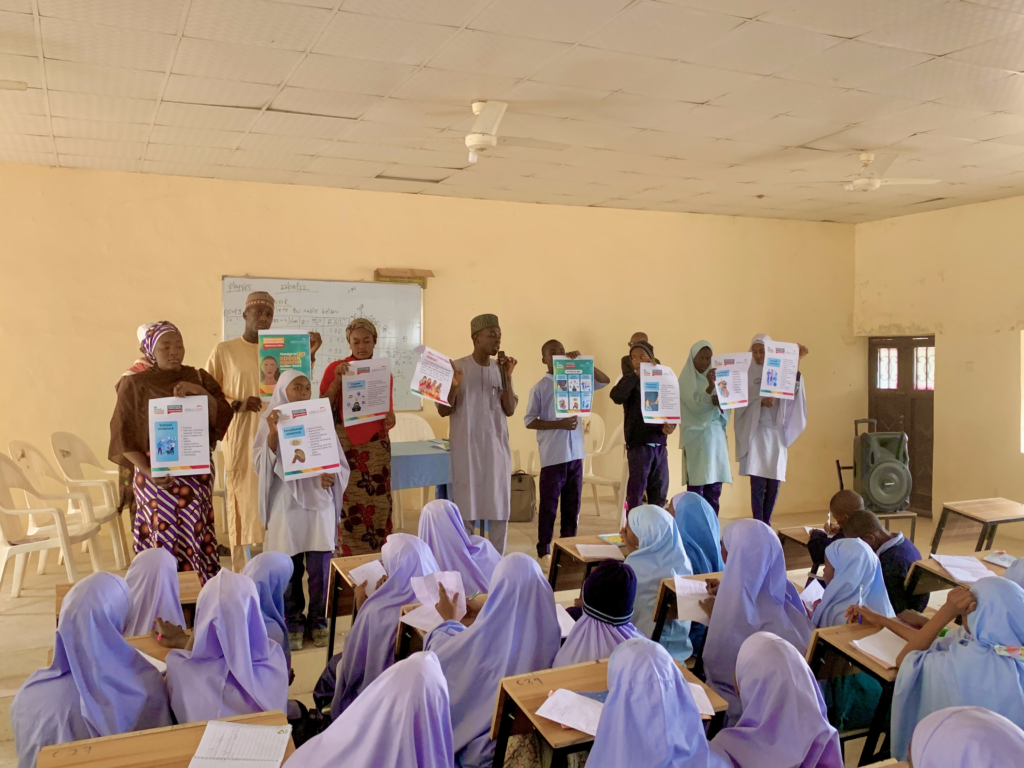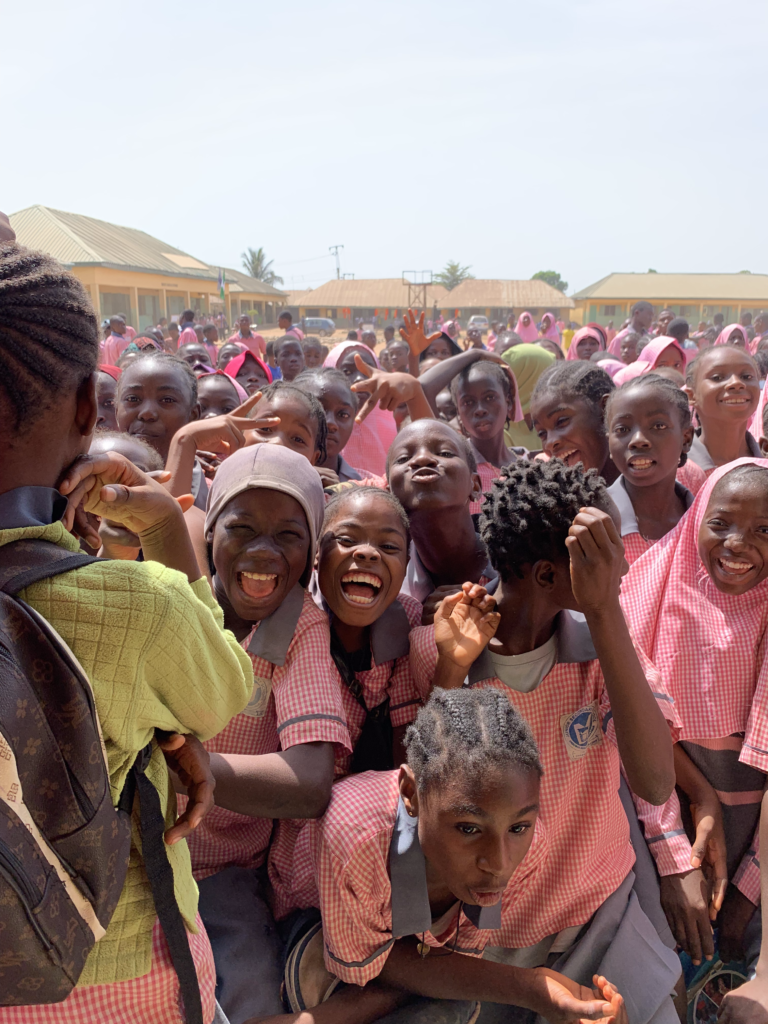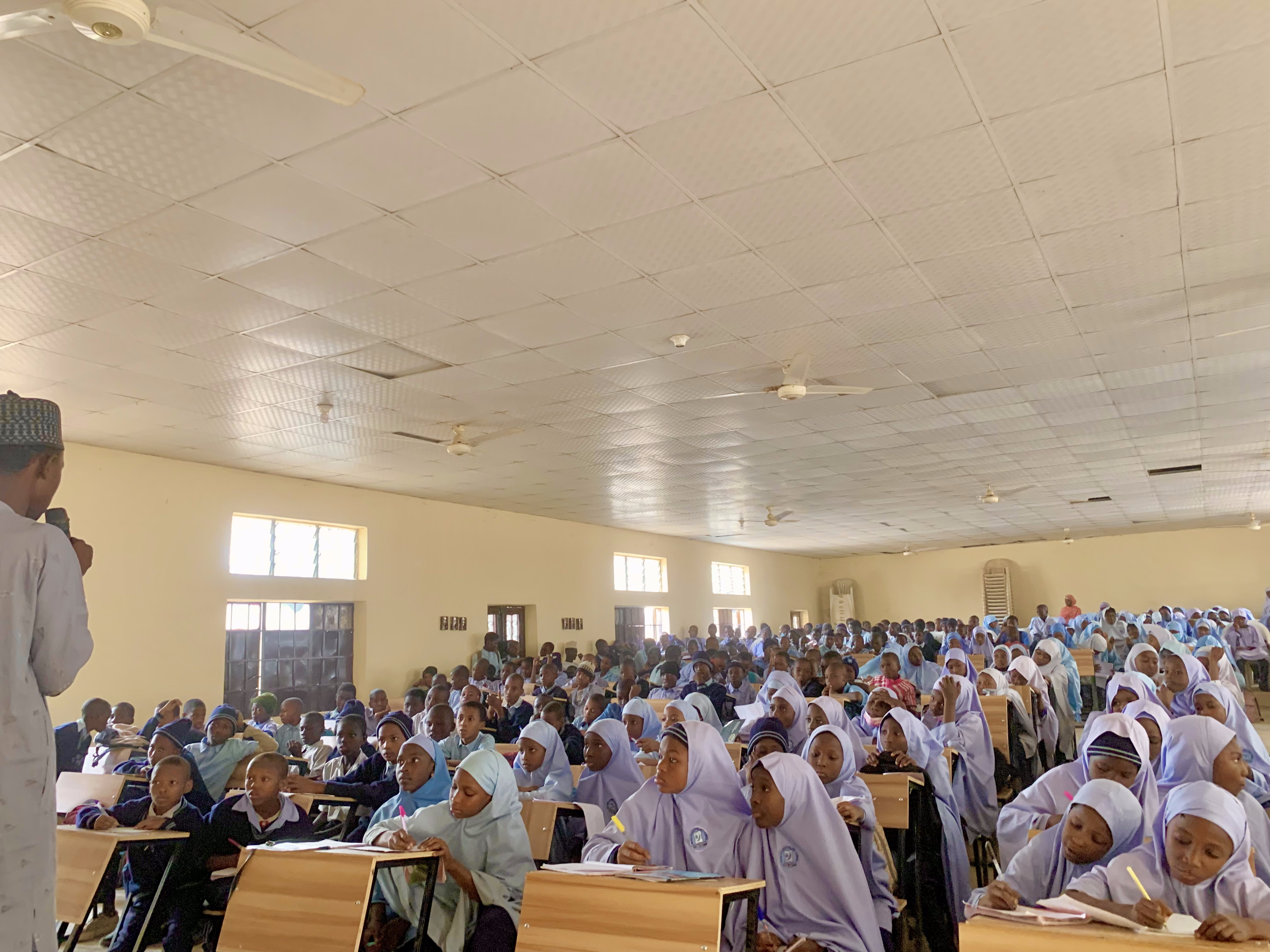She stood up confidently. Much more confident than she had been when she had walked into the room the first time I saw her.
She said; “I used to be intimidated by the boys. They made us believe that we as girls could not achieve as much as they do. But after the Dbegotin programme, I learned to be more confident in myself. I now realise that I can excel in school, represent my school at competitions and make everyone proud.”
That was the highlight of my day, coming from a benefactor of the programme Dbegotin hosted to commemorate the International Day of the Girl in October 2022.
After clapping for her though, I began to wonder what she had gone through at the hands of her male counterpart. How they must have condemned her, said hurtful words, and made her feel that she could not achieve much just because she is a girl. These are indices of gender-based violence, and this November/December, Dbegotin joined the world to raise its voice against such vices.
The Idea
According to the European Institute for Gender Equality, gender-based violence (GBV) is; “…a phenomenon deeply rooted in gender inequality, and continues to be one of the most notable human rights violations within all societies. Gender-based violence is violence directed against a person because of their gender. Both women and men experience gender-based violence but the majority of victims are women and girls.”
From time immemorial, the United Nations Population Fund (UNFPA) has responded to the issues of gender-based violence by supporting relevant projects in over 150 countries. The goal is to end all harmful practices against women and girls by 2030. One of the ways UNFPA achieves this is through the 16-Day-Activism campaign, held between November 24 and December 10 every year. This year, the focus was on digital violence; how to create safe online spaces for women and girls.
The Execution
Dbegotin decided to join the global activism campaign using two techniques:
- Online training and awareness
- In-school training
Our online training and awareness featured social media posts about GBV and its various manifestations. On the 28th of November, we also held an Instagram live session with guest, Ms Dorothy Njemanze; an activist, humanitarian and the Founder and ED of the Dorothy Njemanze Foundation. The talk session was co-hosted by Jeremiah Oseni and Grace Josiah. The conversation focused on the Actions, Gaps and the way forward for non-profits in fighting GBVs in Nigeria.
Our in-school training cut across eight (8) schools within Kano and Abuja. Before the set date, we created informative posters on what GBV is and why it is dangerous; the various types of GBV such as school violence, cyber violence, sexual violence, physical violence, domestic violence and emotional violence. Then we noted how it manifests in schools, and how students can speak against it.
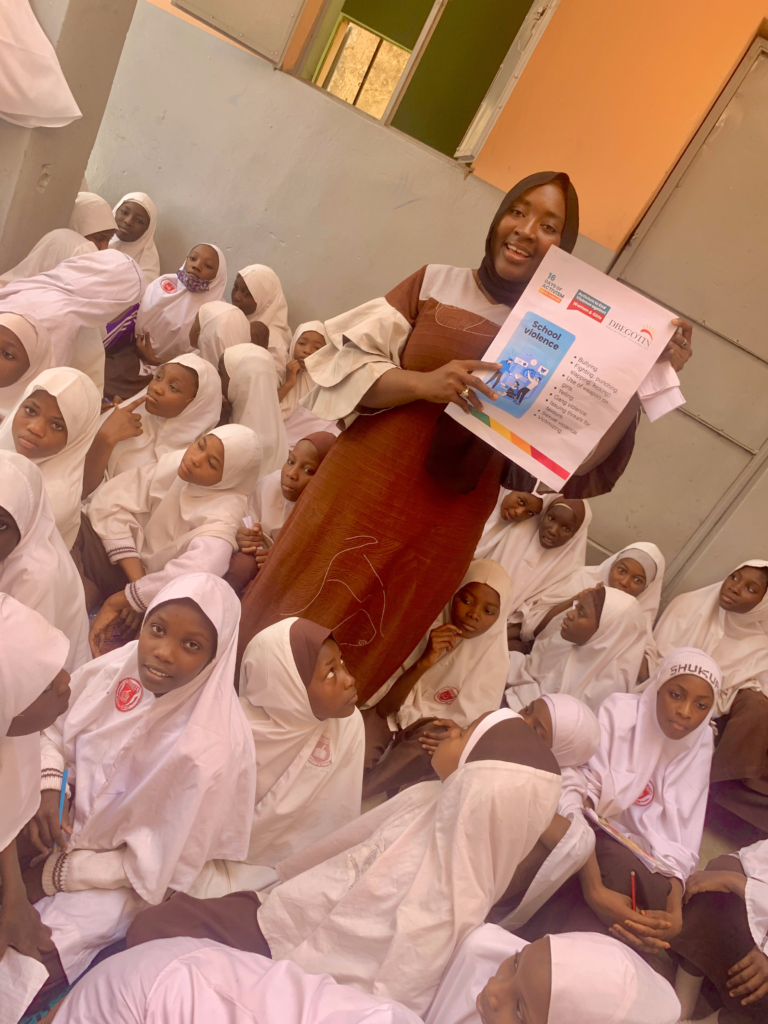
We also created stickers which carried the following phrases:
- Girls are priceless assets to be valued, not violated
- I am an anti-GBV ambassador
- I am proud to speak up against GBV
- I have integrity; I will not harass any girl
- I will protect girls
The first school training kicked off Abuja on Tuesday 29th November, at Government Secondary School, Pasali. They received us right before their exam commenced that morning. The school gathered at the assembly ground where we taught them about GBV, using our posters to visualize the message. At the end of the 12-minute lesson, we asked questions and gifted the stickers to those who answered correctly. The school was well coordinated, what amazed us the most was how the teachers communicated our lessons using sign language to their Special Students. It was really heartwarming and set the mood for our next school. We helped paste some of the posters around the school building before we left, headed for Government Secondary School Kiyi. The same lessons were taught at Kiyi, and the following day at three schools in Gwagwalada.
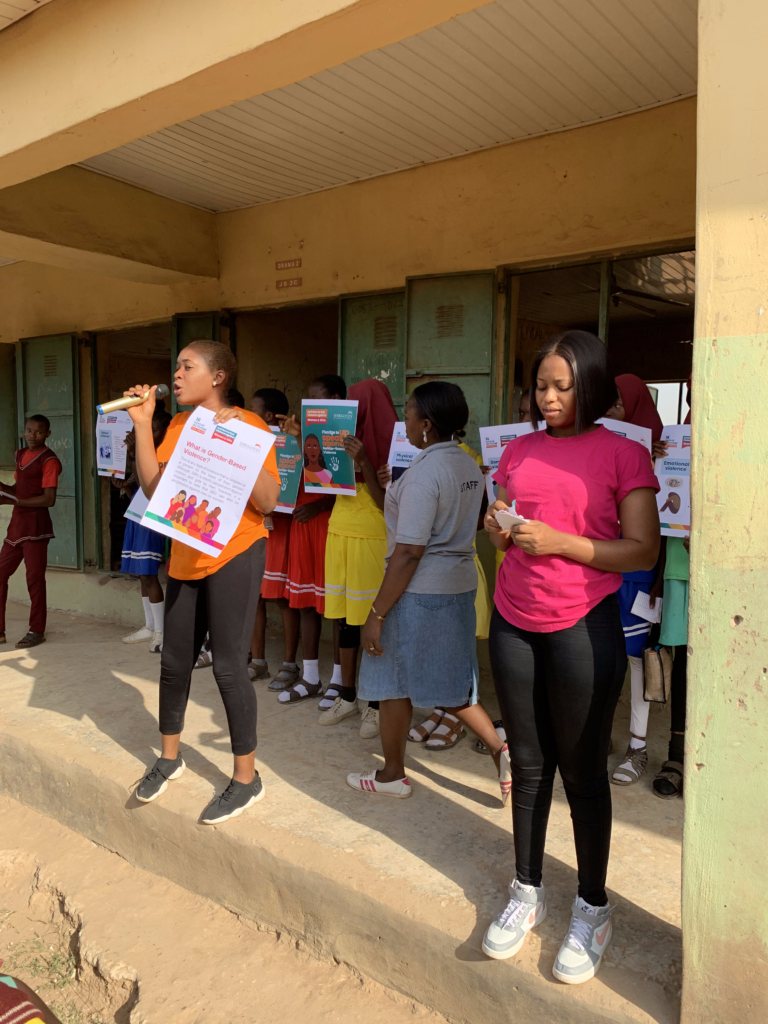
In Kano, our team visited three (3) Secondary Schools in three communities within Wudil; Shukura Comprehensive College, GSS Rimin Gata and GSS Rijiyar Zaki. A major highlight was that we had the Deputy Vice Chancellor of Bayero University in attendance during one of the school training.
The result
GBV has always been common in schools, although most people do not know it as GBV. With our lessons, students are now able to identify and speak against the act. Our lessons were well received, even by the teachers and other staff in all the schools we visited. We made some students ambassadors against GVB, and would subsequently initiate an Anti-GBV club in some of the schools.
